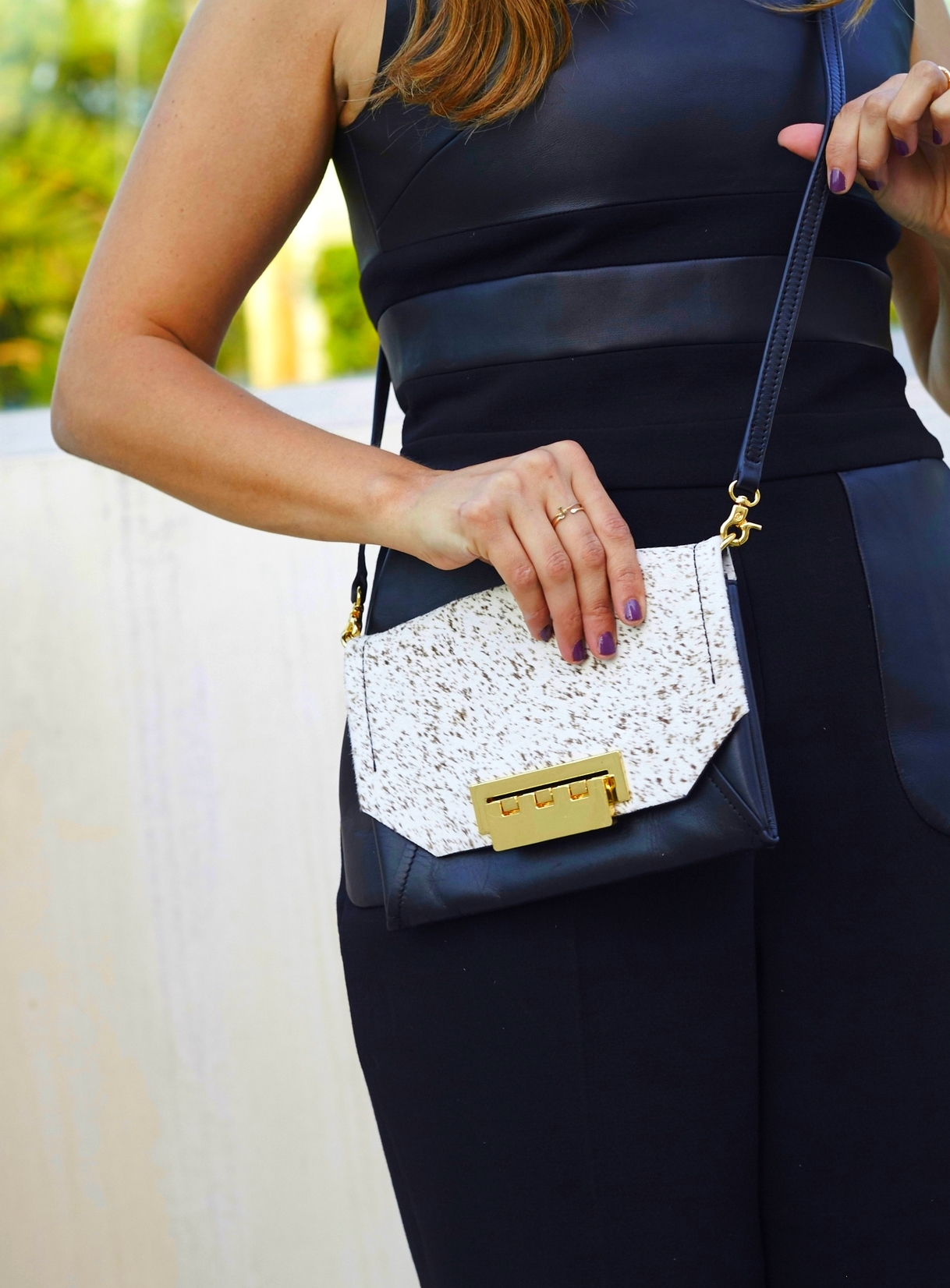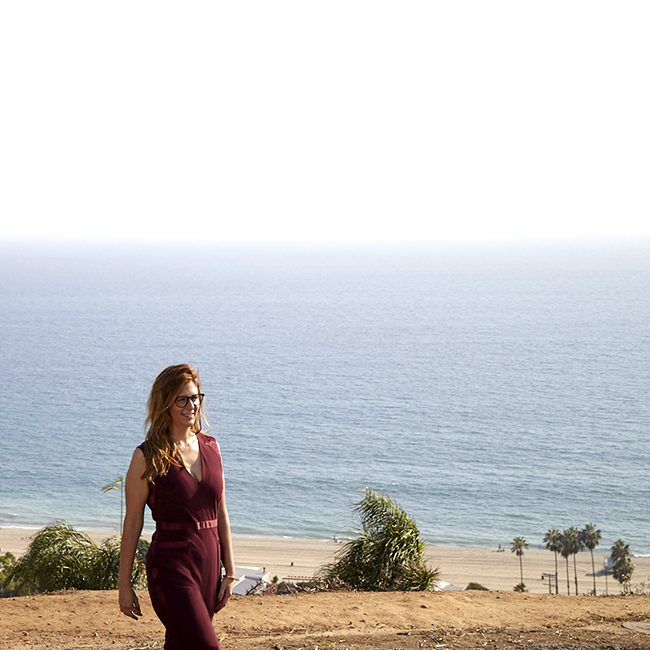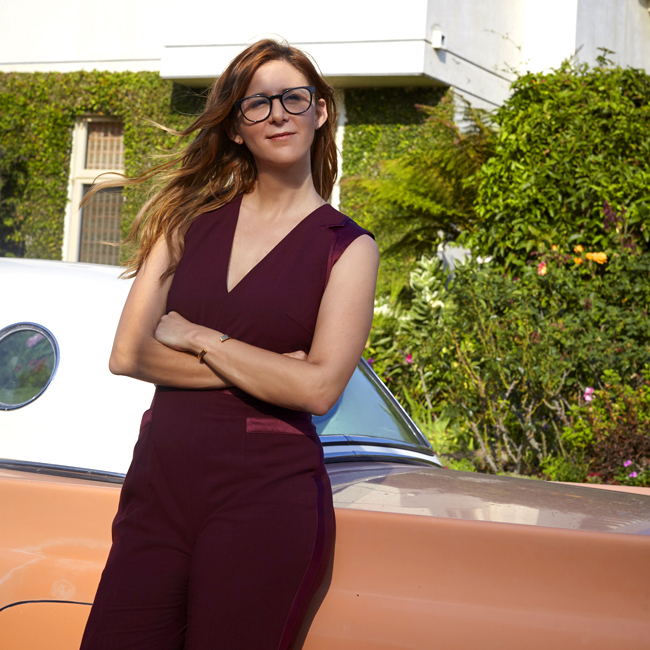
Tracy DiNunzio
Founder & CEO, Tradesy
Los Angeles, CA
It all started with... a closet of unworn clothes.
You have a closet full of clothes that you never wear but can’t get rid of — because parting with that once-worn Opening Ceremony dress for a pitiful consignment store fee is not going to happen, and do people even use Ebay anymore? Nope, they use Tradesy: the destination for designer clothes that need a new home. Tradesy Founder Tracy DiNunzio set out to connect women’s closets in 2012. Determined to make her dream a reality, she slept on her couch and rented out her bedroom on Airbnb to fund her startup. Read on to discover how Tracy went from working at her kitchen table to helping millions of people turn their closets into cash.
What was your biggest challenge in the early days of Tradesy?
Having the discipline and confidence to keep going, even in the first few years when I wasn't sure it was working. I was new to the tech and fashion industries, and it was hard to stay confident in my idea while getting off the ground. Once I figured out how to deal with that, hustling and doing the work was a lot easier.
What’s harder: starting something or maintaining momentum?
Starting is harder. Maintaining momentum comes with its own set of challenges, but if you’ve been through the starting phase, you’re already better equipped. It can be very challenging to keep up morale when you don’t have traction or users to give you feedback, and you’re trying to get in front of the right people. It took a solid two and a half years for us to attract attention from both investors and customers. That doesn’t get reflected in a lot of stories told about business, but prior to Tradesy I launched a business called Recycled Bride where I got to test and fail when no-one was looking.
As you’ve become more established, have your fears and insecurities decreased or simply evolved?
Left to their own devices, fears will just evolve into new fears, because there’s always a bigger problem around the corner. But going through the process of accepting new challenges over and over again, I’ve build up more confidence. I don’t experience the same doubts that I did early on, but that’s not because I’ve become more established externally, it's because I’ve developed a deeper confidence in my own abilities.
Any tips or methods for dealing with those fears and anxieties that come with starting a business?
Everyone has a memory of being strong or getting through something that they can draw on. For me, it was dealing with a spinal birth defect that led to a lot of surgeries throughout my life. I was better able to deal with the challenges of entrepreneurship by remembering that I'd dealt with other challenges, which meant I could handle this one too. Thinking in this way helped me shift my focus from fear to learning experiences. Whenever I found myself thinking about failing, I’d try to find something I wanted to learn about I’d pull all of my energy into learning instead of worrying, and my anxiety would decrease. Once you get used to shifting your focus, it slowly becomes a natural instinct.
You can take action on the things you’re worrying about instead of worrying about them.
How has your style evolved from the days of working at your kitchen table to now?
Studies show that when you look like your perceived version of success — whatever that may be — you actually perform better. When I started Tradesy I was super broke and my wardrobe was extremely limited. But I had previously gone through a phase where I sold all of my fast fashion (which never made me feel good) during the build of Recycled Bride. I transitioned from a very big closet of stuff I didn’t like, to a small closet of designer finds. I pared my wardrobe down to a few things that made me feel really powerful, and that felt like a secret weapon to me. Now through Tradsey, I’ve been able to build a really great wardrobe. I focus a lot on architectural, loose silhouettes that are comfortable but still elegant.
Dressing in a way that projects success enables me to attract people to what I’m building.
What are some key survival points for entrepreneurs?
Don't get too hung up on your preconceived notions about your own strengths and weaknesses — it just limits you. You have to be careful with the definitions you make about your identity. They’re assumptions based on past experiences which may or may not be true — but you can never test those assumptions if you hold on to them too dearly. So don’t attach yourself too much to who you think you are and how you operate. I had to let go of a few things that I thought were part of my identity, but were really just habits. I used to say, “I can deliver a great marketing message, but don’t ask me about the numbers.” But in order to be a well rounded executive, I needed to have a strong grip on the numbers. So I stopped saying that, and discovered that I really enjoyed the math. Being less fixed about how I defined myself really opened me up to doing my job better.
There’s no one way to do this. We see a lot of examples of entrepreneurs that went from a prestigious university to venture financing to success. I come from a background with no education in any of the industries that I work in now, and I think it’s important for people to understand that there are a lot of paths to finding happiness and success. You don’t need any prerequisite other than your own idea.



















